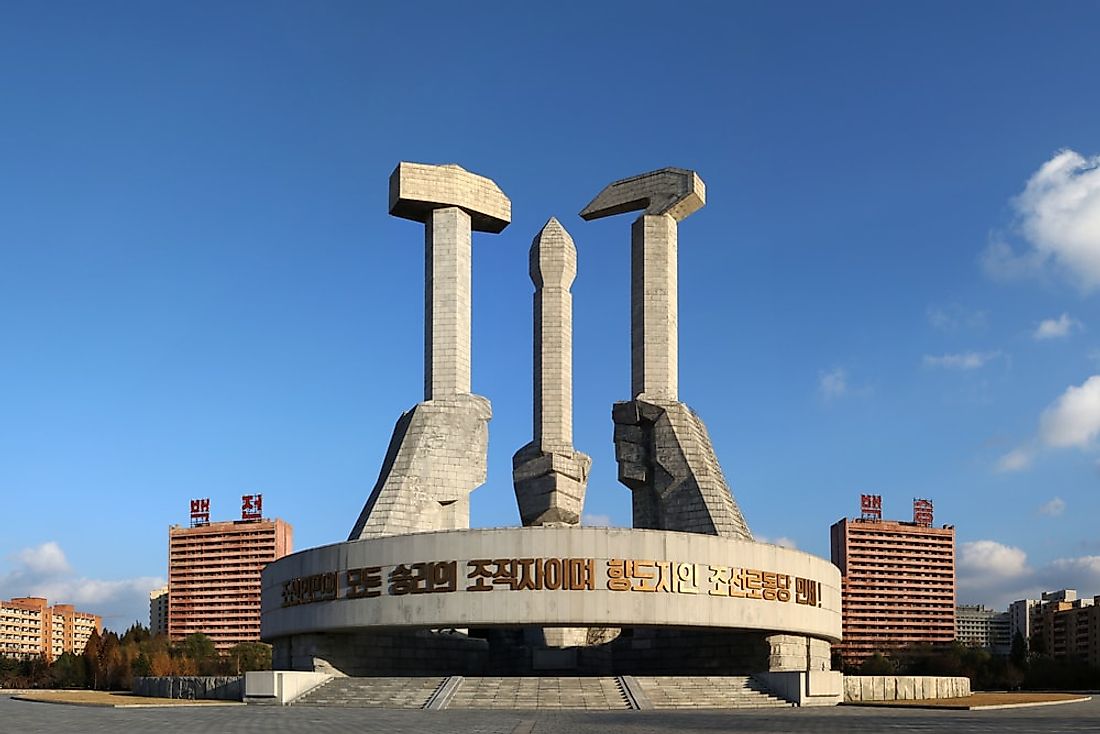What Type of Government Does North Korea Have?

The government of the Democratic People's Republic of North Korea has been dominated by the ruling Workers’ Party of Korea since 1948. It has been described as a socialist state and a totalitarian dictatorship. The East Asian country has its government structure fashioned on the Soviet model, where the primary principle is self-reliance on its national resources. The government of North Korea subscribes to communist ideologies under a dictatorship. The Constitution in use was adopted by the country in 1998 and subsequently amended in 2009, 2012, 2013, and 2016. The government of North Korea holds tight control over the country.
Chief of State Of North Korea
The Supreme leader of North Korea is the Chief of State, who is elected by the Supreme People’s Assembly. Since the country's liberation from Japanese occupation in 1945, the position has been hereditary. The current Chief of State, Kim Jong Un, was elected unopposed after the death of his father, Kim il-Sung. The Chief of State oversees the country’s security, both internal and external and heads the National Defense Commission (NDC). The Chief of State also leads the Presidium of the Supreme People’s Assembly.
Premier Of The Government Of North Korea
The Premier is also elected by the Supreme People’s Assembly. As head of government, the Premier appoints the cabinet as well as three Vice Premiers. The Premier, in collaboration with the ministers, implements and directs national policies as determined by the Worker’s Party of Korea's Central Committee.
Supreme People’s Assembly Of The Government Of North Korea
The Supreme People’s Assembly is the legislative arm of North Korea’s government. 687 deputies from individual constituencies are elected by secret ballot in five-year intervals. In practice, only one name appears on the ballot paper, which is preapproved by the Democratic Front for the Reunification of the Fatherland. The Assembly congregates once or twice a year in the capital Pyongyang to approve national budgets and legal amendments and to appoint the leadership and members of the National Defence Commission, Presidium, and Cabinet. The Supreme People’s Assembly is regarded as nothing more than a rubber stamp since decisions are drafted by the Workers’ Party of Korea and the Presidium.
Presidium Of The Government Of North Korea
The Presidium of the Supreme People’s Assembly is the principal legislative institution in the country. The Presidium is mandated to oversee legislative affairs in place of the Supreme People’s Assembly. Membership of the organ is comprised of the President, Vice-Presidents, Secretary and members. The institution is elected for the same term length as the sitting Supreme People’s Assembly.
The Presidium congregates the Supreme People’s Assembly’s sessions. When the Supreme People’s Assembly is in recess, the Presidium debates and approves concerns such as the state’s economic plans and budget and new legislation. The institution also appoints or dismisses members of the cabinet upon advice from the Premier, interprets the constitution, ratifies international treaties, grants pardons, conducts elections for membership to the Supreme People’s Assembly and forms or abolishes ministries and commissions.
Judiciary Of The Government Of North Korea
The Central Court is the supreme judicial institution in North Korea. Judges to the Court are elected by the Supreme People’s Assembly. Cases are mostly heard by one judge and two people assessors. Special cases may warrant the presence of three judges. The Court is also the main court of appeal and hears cases from the provincial courts. The judicature is answerable to the Supreme People’s Assembly and the Presidium when the Assembly is in recess.
North Korea and the United Nations
North Korea is a member of the United Nations. It was admitted on September 17, 1991 alongside South Korea, in what was called the United Nations Security Council Resolution 702.











